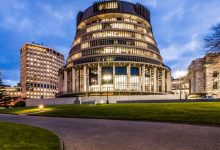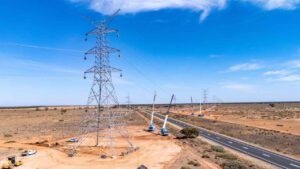The new government in New Zealand will nix the country’s goal of a completely clean grid by 2030, but says it will try to fast track renewable projects by pressing local councils to drastically cut the time they take to approve projects.
It says it wants to double the country’s renewable energy generation capacity, but it hasn’t set a deadline for this goal.
The National Party, led by new Prime Minister Christopher Luxon, won last weekend’s national election in New Zealand, but will need the support of either the conservative Act Party or the mercurial Winston Peters to govern, as they did not win a majority.
This means that National may need to negotiate to get its admittedly limited renewable energy policy suite through parliament.
The key plank of National’s energy policy is to reduce the amount of time it takes electricity and transmission projects to get resource consent approval – local council permission for any project that has an environmental impact – to within a year, and scrap entirely new consents for upgrading existing transmission and local power lines.
In 2020, grid owner and operator Transpower said consenting was one of the hurdles to getting new projects up and running, with a status quo of three to seven years for major projects compared to three years for construction.
Part of the problem, however, is overwhelmed councils. National says they will streamline the process with new to-be-designed national policy and environmental standards.
Also on the cards is cancelling the Lake Onslow pumped hydro project, on the grounds that the NZ$15.7 billion ($15 billion) project cost four times more than initially expected, and it also proposes to reverse the ban on offshore oil and gas exploration.
National has floated installing 10,000 new charging stations for electric vehicles, but is also planning to scrap the Clean Car Discount subsidy for EVs and hybrids, and review the vehicle fuel emissions standard, the Clean Car Standard.
It’s also keen on offshore wind, but again the party is only willing to support the emerging industry through faster feasibility permits and requiring resource consents to be issued within two years of application.
Coalition partners might change those plans
National’s potential coalition partners have some additional policies, which they may wish to see imposed in exchange for their support.
The Act Party wants to repeal entirely the fuel emissions Clean Car Standard and the EV rebate program Clean Car Discount.
Winston Peters’ New Zealand First however wants to go further.
He wants to set up a new Ministry of Energy to focus on both cheap renewable energy and reopening coal mines, and force energy generators to sell their retail arms while letting small local distribution companies to buy up generation, retail, and transmission assets.
Cash is ready to go
Where governments around the world are putting significant cash into kick starting energy industries, New Zealand’s new governing candidates are conspicuously silent on providing any new money for the sector.
This could be because the mechanisms for funding new energy projects in the country are already in place.
In August, the previous Labour government set up a NZ$2 billion ($1.9 billion) fund with US investment firm Blackrock to fund climate infrastructure in the country, aimed at the 100 per cent renewables by 2030 goal.
Government-owned green bank, New Zealand Green Investment Finance, last month closed a NZ$170 million international funding round for its Solar Finance program – a sector the country is only just dipping its toes into – that will finance the country’s first residential power purchase agreement portfolio.
Another government-owned fund, the emissions trading scheme-funded Government Investment in Decarbonising Industry, invests in industrial decarbonisation, paying out more than NZ$112 million so far and leveraging NZ$196 million of private capital.
And the Climate Emergency Response Fund, which is paid for by polluters through the ETS, underwrites government efforts to cut emissions and improve climate resilience. National plans to spend several billion dollars of this on tax cuts.







